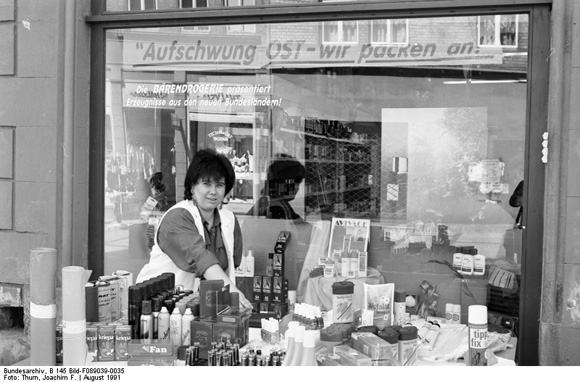Source

Source: © Bundesarchiv
East German retail trade had been dominated by the GDR trade union [Handelsorganisation or HO] and cooperative societies [Konsumgenossenschaften], i.e. the establishments of “the socialist retail trade.” Since the supply of goods to the population needed to remain secure, the Treuhandanstalt [Trusteeship Agency] regarded the privatization of the retail trade as particularly important. It faced some problems, however. For example, even before the political unification on October 3, 1990, about 5,700 shops had already been transferred to private ownership on their “own initiative,” and joint ventures with Western firms had been created without input from the agency. At the end of November 1990, the Treuhandanstalt put about 8,500 stores out for tender. Of these, only about 70% could be transferred to private ownership at first since unresolved questions regarding ownership delayed the privatization process. In January 1991, 1,400 more stores were put out for tender, and in the summer of that same year, the Treuhandanstalt had basically completed its main task.
Shown here is a drugstore in Naumburg (Saxony-Anhalt), where the motto “Upswing East – We’re Pitching In!” signaled a spirit of optimism.

Source: © Bundesarchiv